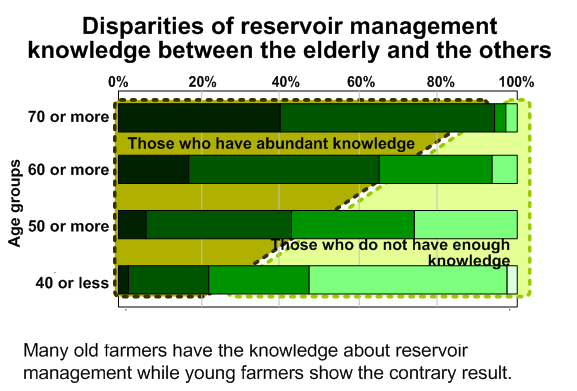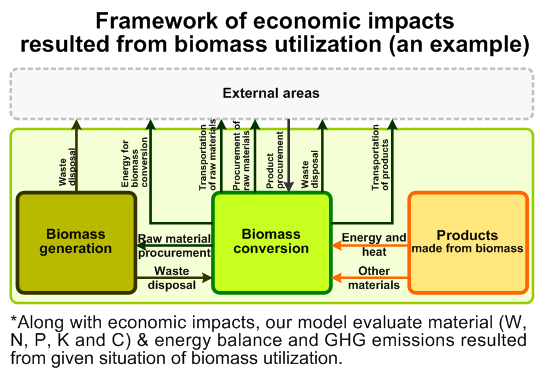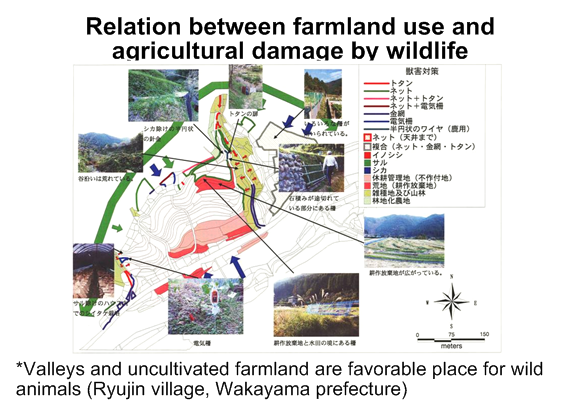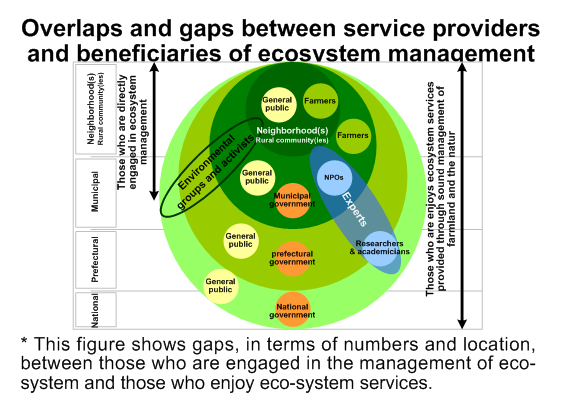Research Areas
Restructuring regional resource management system through knowledge management
Regional resource such as farmland, a mountain and reservoirs are maintained by the tacit knowledge of farmers who have been engaged in the management over many years. However, the tacit knowledge related to the management is not only succeeded by the next generation but also dispersed. The situation that maintenance becomes difficult has happened in many places. The strategy for succeeding to the necessary knowledge for the regional resource management is researched introducing the knowledge management as counter measures in this study.

Planning and evaluation for the effective management of biomass resources
Rural areas faced with depopulation and aging play central roles for the provision of eco-system services such as food, climate regulation, and recreational experiences. Thus, the development of methodologies for the effective use and management of rural areas are important. One of challenges of our time is the utilization of biomass generated in the countryside, which is expected to bring various benefits for the rural areas through job creation and reduction of unused farmland. In this context, we have developed an integrated economic and environmental impact assessment model to clarify favorable use of biomass generated in rural areas.

Clarifying effective countermeasures against agricultural damage by wildlife in mountainous areas
Recently, human-wildlife conflicts become more acute as wild animals such as bears and boars frequently penetrate to farmland and residential areas for their feed. Such issues are more serious especially in mountainous areas where people are faced with difficult conditions for farmland management. Currently, we are trying to identify the relation between agricultural damage by wildlife and farmland use and to clarify effective countermeasures to help people and wildlife co-exist together in the countryside.

Development of rural planning methodologies in the era of low growth and population decrease
Rural areas across Japan have been confronted with serious aging and depopulation trend. Development and/or revitalization of those areas through direct investment such as public works project become more difficult as governmental finance has been in harsh conditions since late 1990s. As such, our society now seek for new methodologies for rural planning which do not solely rely on direct governmental investments and helps involves various stakeholders including farmers, residents and other people & organizations in the planning process.




